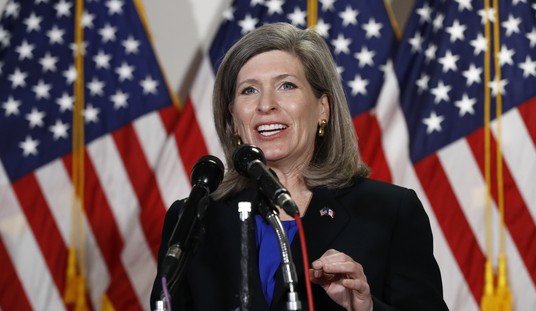Perhaps the part about Robert Mueller investigating the Supreme Court for colluding with Republicans and red states was a joke. The accusation of collusion was clearly not, and even John Heilemann has to pull Nicole Wallace off the ledge on this argument. If this is collusion, Heilemann politely scoffs, it’s the kind that legislatures do regularly to test their constitutional boundaries:
MSNBC’s Wallace: “Maybe Mueller will look into” whether Republican states are “colluding” with the Supreme Court against abortion pic.twitter.com/MgAiMKcV5g
— Tom Elliott (@tomselliott) September 7, 2021
Even without the weird Mueller comment, it’s a surpassingly bizarre claim to make, especially for someone who once worked for Chief Justice John Roberts. What precisely would be the collusion here? The legislature passed a bill in the open, and it would have stopped there had no one sued to challenge it. Of course, that was a given, but it wasn’t the GOP that took the bill to court. This process has happened for decades if not much of the last two centuries. It’s apparently only “collusion” when the outcomes don’t favor Wallace.
That’s not the only nutty take on the Supreme Court in the wake of their punt on the Texas abortion law. Media outlets now have seized upon the epithet “shadow docket” to describe yet another regular feature of Supreme Court action, turning the routine into the absurdly sinister:
Immigration, COVID-19 restrictions, voting rules and abortion are just some of the hot-button issues that have garnered the Supreme Court’s attention over the last few months, but not through its regular process of exhaustive written briefs, oral arguments and, finally, a signed opinion of the court.
Instead, the high court has intervened in disputes involving these issues that arrive through its so-called “shadow docket,” with the most recent decision allowing a Texas law banning abortions after six weeks of pregnancy to remain in effect inviting fresh scrutiny to this part of the Supreme Court’s work.
The phrase was devised by William Baude, a professor at the University of Chicago Law School, in 2015 to describe the orders and summary decisions issued by the Supreme Court without full briefing and oral argument.
In recent years, the shadow docket has received growing attention while the number of cases the Supreme Court decides on the merits — after several rounds of briefing and oral arguments followed by a signed opinion — has declined.
There’s a perfectly rational explanation for these phenomena, and it has nothing to do with shadows. These cases get action — but not final adjudication — when parties apply for restraining orders on public policies. In all of these cases, the Supreme Court has had to settle whether injunctions are legitimate when judges in lower courts enjoin enforcement of laws or regulation, a process which requires some discussion of the merits of the case in briefs. The Supreme Court often does not issue commentary on such orders, but contra the “shadow docket” argument, they still take votes on these injunction decisions, and they are more often producing opinions after the fact these days when they do. The order on the Texas abortion law also had an explanation from the majority as well as four written dissents. That’s hardly a “shadow” process.
If that has any causative impact on the number of cases decided by the Supreme Court (which isn’t at all established in this argument), it might be that parties end up withdrawing after an unfavorable ruling on a TRO. It gives everyone a sneak peek into whether it’s worth the considerable cost and time to push a case all the way to the top. That’s not a failure of the system; if anything, it’s not a bad way to separate the wheat from the chaff.
It’s amusing to see the media treat this as some sort of conspiracy when they cheered this very process four years ago. Remember when “The Resistance” went judge-shopping in Hawaii to get nationwide restraining orders on Donald Trump’s immigration policies? This is the exact same process. And after a couple of years of this kind of action, William Barr warned about district court judges overstepping their jurisdictions and tying up appellate and Supreme Court dockets with nonsensical national injunctions. It seems highly doubtful that Wallace or anyone at MSNBC embraced the warning at that time.
Now that they’re losing in this process, we’re supposed to believe in secret collusion networks involving the Supreme Court, the GOP, and, er … thousands of state legislators. It’s sheer nonsense, and apparently only Heilemann is willing to call it out on MSNBC’s air.








Join the conversation as a VIP Member